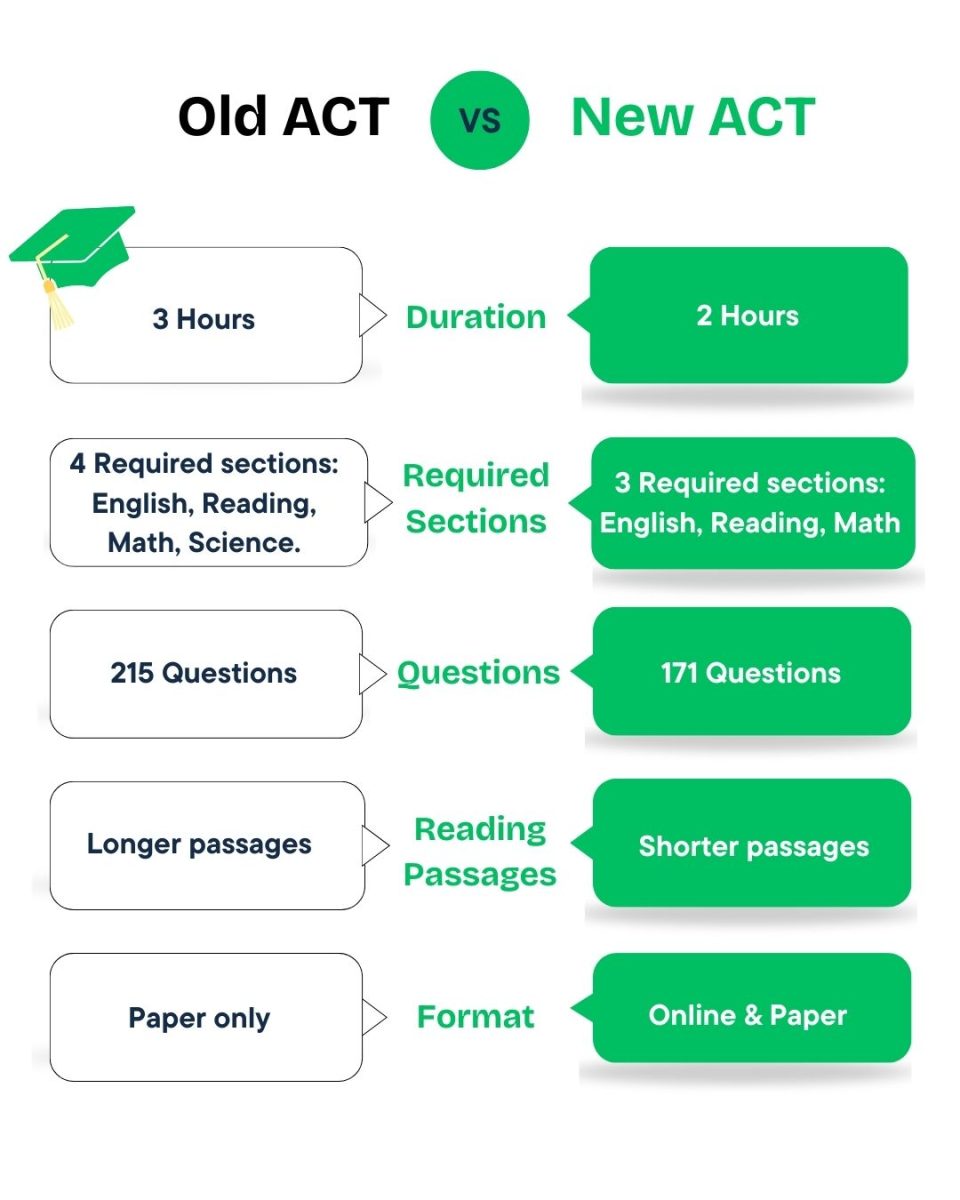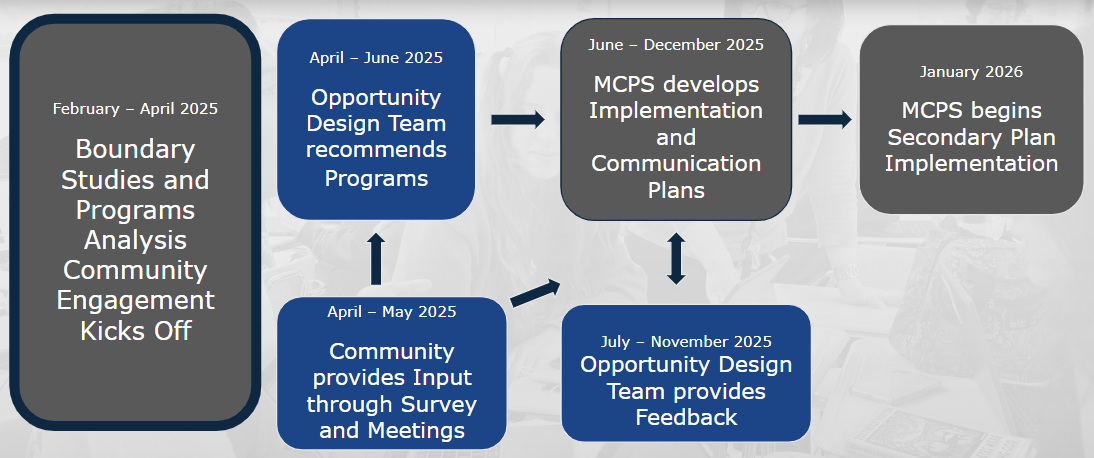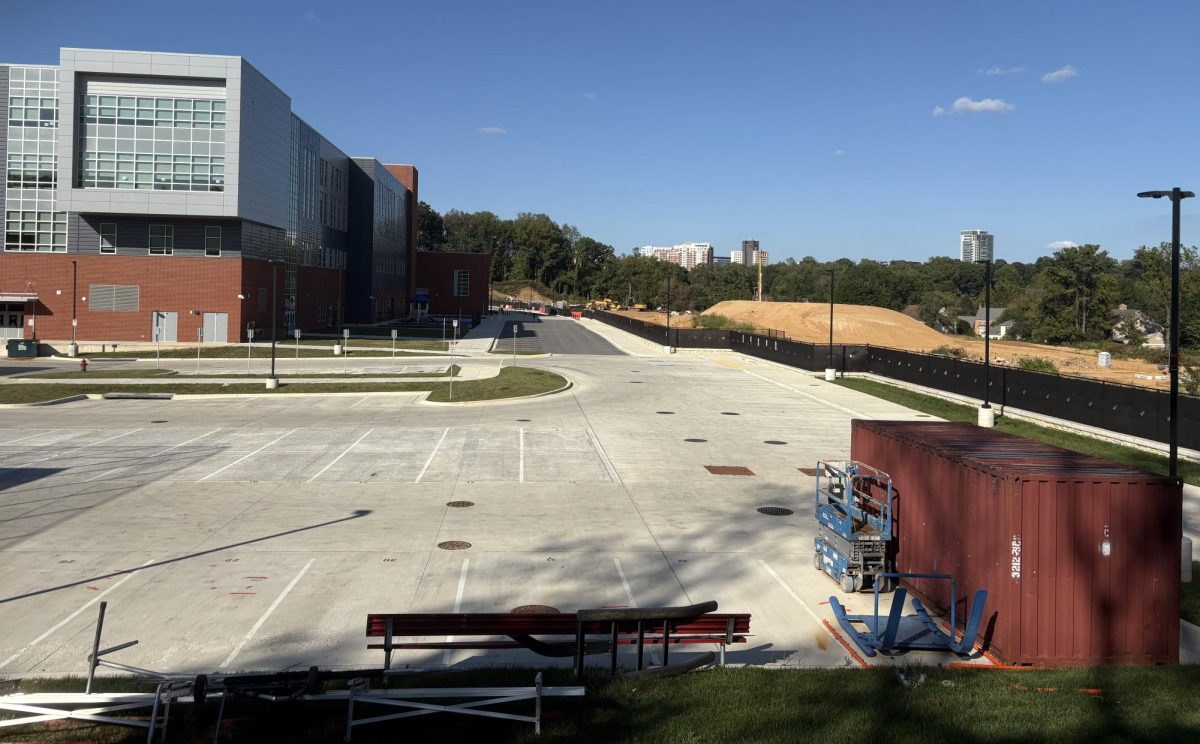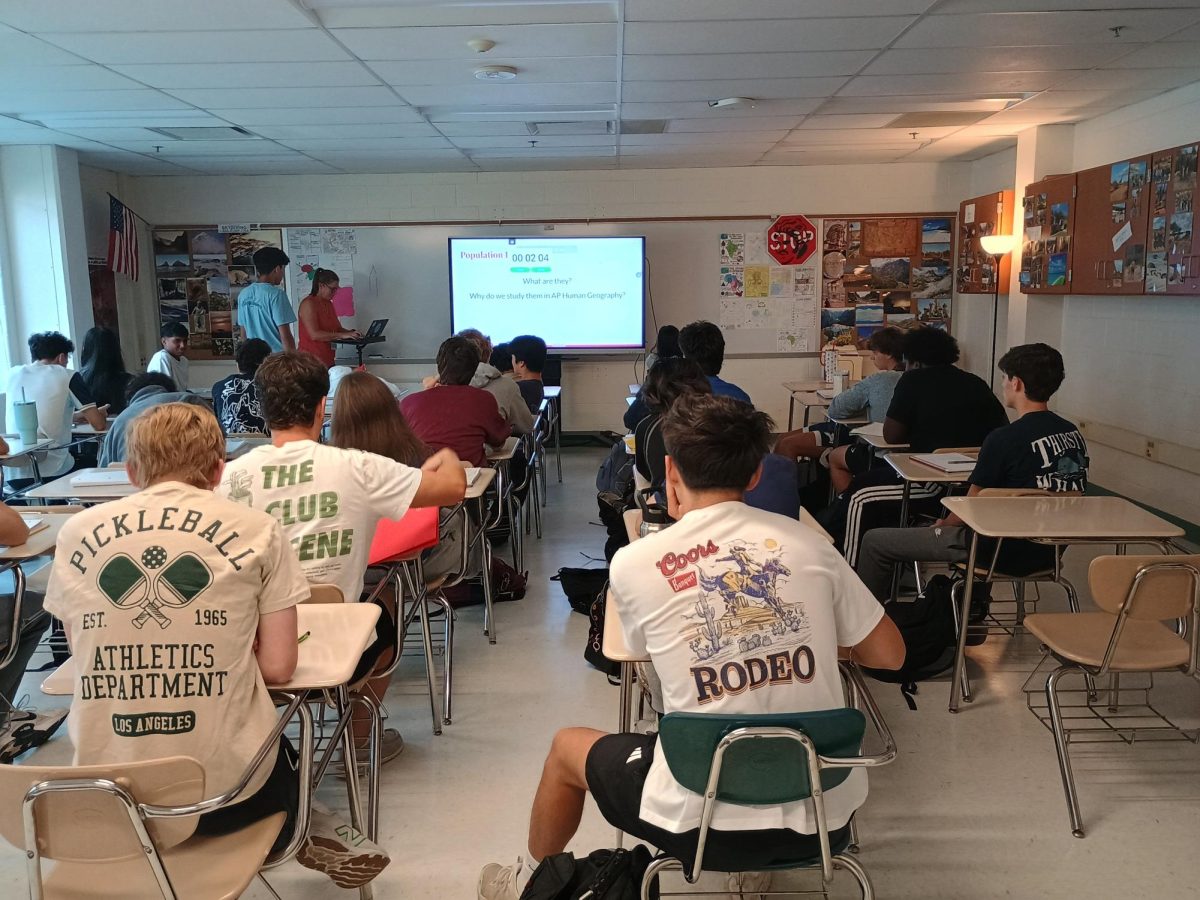At 10:30 a.m. on Tues. March 13, the final day for AP registration, in the middle of fourth period, there were already over 100 students lined up outside the kiosk into the student commons. By 10:45 a.m., there were about 200. By the time fourth period was actually supposed to end, at 10:53 a.m., the crowd of people in the student commons was overwhelming.
“I stood for 25 minutes on Monday and moved about two feet,” said senior Dianne Walsh. “Tuesday, I walked [into the Student Commons] but gave up because the entire Commons was filled.”
Since WJ has to process thousands of AP registration forms, there are always long lines. This year, however, the outcry of complaints from both students and teachers was louder than it has been in the past.
Initially, when the forms were passed out to students at the end of February, the forms were sent to students’ first semester AP teachers, causing confusion among both teachers and students. This delayed many students from receiving their correct forms in a timely manner.
Then, the lines and crowds during the last few days of registration caused much more distress.
“Not only did students want to get out of class early to get in line, but they were constantly looking out the window to see where the line was,” said AP World History teacher Mike Williams. “They looked anxious.”
Some students were deterred by the immense crowds, and simply chose not to register for their AP exams at all. For seniors who are trying to get college credit, this might have consequences for their ability to place out of classes next year.
“[It looked like] a two-hour wait, and people were getting marked late to class,” said senior Bryn Molloy. “You weren’t even guaranteed to register if you waited in the entire line, so I just decided not to register.”
Due to this phenomenon, the AP registration dates were extended to Wed. March 14, and students were given passes to arrive late to fifth period on both Tuesday and Wednesday. This extension was partly meant to prevent students from skipping class without teachers’ permission.
“[Skipping] should not have been an action that students took,” said assistant principal Micah Wiggins. “We never condone skipping classes. [Principal Jennifer] Baker let the students know that all students would be registered, and there would be hall passes given to students who remained in line to their fifth period classes and students would be allowed to register after school.”
After the administration observed issues with students missing class, Baker made announcements over the P.A. system telling students not to leave class during fourth period, and sent e-mails to teachers assuring them that leaving early from fourth period was not allowed.
Wiggins said that since this is business manager Kathy Cosgrove’s first year in the position of the AP registrar, differences in timing may be expected. She assumed the responsibility from former registrar and WJ webmaster Maria Limarzi, who resigned from the position.
“When another person performs a task, there’s going to be a difference in the way that he or she carries out that function,” said Wiggins. “Two teachers could have the same lesson plan, but each teacher can teach the lesson in two entirely different ways. In anyone’s first year of doing something, there’s going to be some challenges and on-the-job training.”
“There are over 2700 exams we have to register for,” said Cosgrove. “It would be helpful if people registered during the first four days as opposed to the last two days.”
Some members of the community have ideas about how to improve the AP registration process. For example, some suggest turning in forms to guidance counselors, or returning the registration form to the same teacher from which the students received the form.
“There is some discussion about alternative ways to administer AP registrations in the near future,” said Wiggins.







